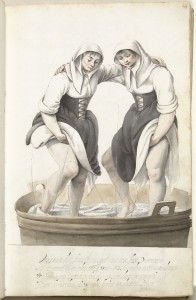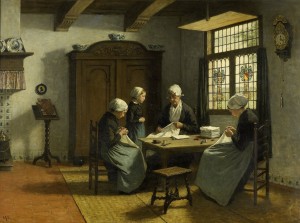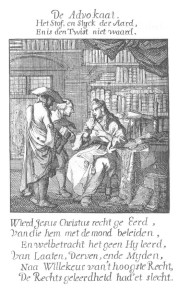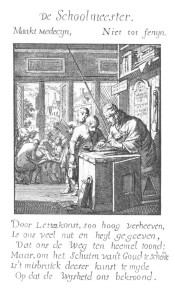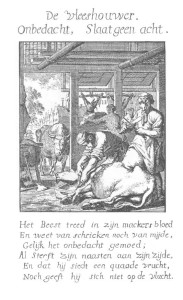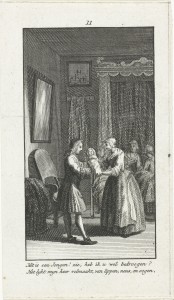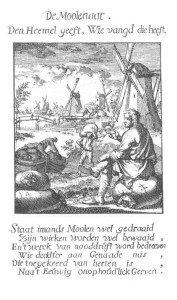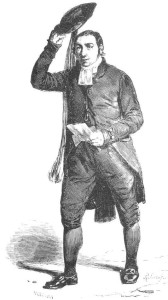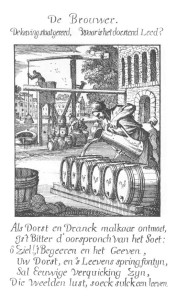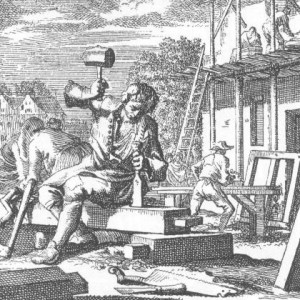A wasvrouw was a laundress. It was an occupation for poor women, who were usually single or widowed. … [Read more...]
Dutch term – Voogd
A voogd is a guardian. Before 1811, guardians were usually appointed by the Weeskamer (orphan chamber). After 1811, they were appointed by the court. You can find guardianship appointments in the court records. … [Read more...]
Dutch term – Advocaat
An advocaat is a lawyer. I am often surprised at the number of court cases my ancestors were involved in. Even some of my serf ancestors hired lawyers to defend their rights to cutting trees or taking over the farm against the landlord. Most lawyers would have had a university education. Since 1575, Leiden had a university where people could get a law degree. Other universities followed later. You will recognize these academically trained lawyers by the letters "J.U.D." behind their names … [Read more...]
Dutch term – Schoolmeester
A schoolmeester is a school teacher. Most school teachers taught in small village schools, consisting of one room, where they were expected to teach reading, writing and arithmetic to their pupils. Reading was considered more important than writing, as they could then read the bible. Most children would only go to school for about six years. Children of farmers would be kept home in the summer to help with the harvest and in the winter they would not always be able to attend school if the … [Read more...]
Dutch term – slager
A slager is a butcher. An old term for slager is 'vleeshouwer' or 'vleeschhouwer' (literally: meat cleaver). Poor people did not often eat meat. One of the recurring themes in letters written by emigrants to the United States is their surprise that everyone is able to afford eating meat. These 'spekbrieven' [bacon letters] are one of the reasons why many relatives chose to follow them. … [Read more...]
Dutch term – Vroedvrouw
A vroedvrouw was a midwife. There were also vroedmeesters, doctors specialized in helping women deliver children. The midwife was responsible for more than just seeing the mother and the child safely through the birth. In the case of an unwed mother, she was also urged to press the mother into revealing the name of the father of her child. It was believed that no woman would lie in childbirth. She would know that she could meet her maker at any minute and would have to account for her … [Read more...]
Dutch term: Molenaar
A molenaar was a miller. There were different types of mills. Besides the classic Dutch wind-powered mill, there were also horse-drawn mills and water mills. Mills could be used for different purposes, the most common being grind grain or to drain water from low-lying fields. People could not just build a mill, that right was reserved for the landlord. Before the 19th century, most millers did not own the mills that they worked, but worked for the landlord. The French occupation put an end to … [Read more...]
Dutch term – Bode
A bode was a messenger, which can sound like an errant boy but it was a far more important function than that. The best approximation is probably a bailiff, someone charged with delivering important documents and news and making sure that the other party receives it. They had a wide array of tasks, ranging from taking messages to organizing public tenders and contracts. Bodes were usually employed by government bodies, like city councils, poor administrations and the States-General. … [Read more...]
Dutch term – Brouwer
A brouwer is a brewer. Since most of the water was not safe to drink, most people drank beer. 'Small beer' only had a low alcohol percentage so it was safe to drink for children. In larger towns, brewers were organized in guilds. In smaller towns, they operated independently. In most places, brewers had to pay tax on the beer they produced. Some of these tax records can be found in local archives or city ledgers. Also, their measures and pints were sometimes calibrated by town officials to … [Read more...]
Dutch term: knecht
A knecht is a term used to describe the occupation of somebody who works for somebody else. The term does not have an exact English equivalent, but terms like servant, hand, apprentice or assistant come close. Often, the type of knecht is specified, for example timmermansknecht (carpenter's hand), bakkersknecht (baker's hand) or landbouwersknecht (farmhand). Most men started out working as a knecht to learn a trade. Some became masters in their own right, others remained a knecht for the rest of … [Read more...]
